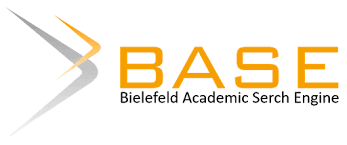MODEL PEMBELAJARAN PROBLEM BASED LEARNING BERBASIS ASESMEN KINERJA DAN BAKAT NUMERIK TERHADAP HASIL BELAJAR MATEMATIKA SISWA
Keywords:
Learning Model, Problem Based Learning Based on Assessment Performance, Numeric Talent, Learning OutcomesAbstract
This study aims to find out the interaction and influence of problem based learning model based on performance assessment and numerical talents towards the learning outcomes of mathematics learners. Type of research in this research is quasi experimental research (Quasi Experiment). This study has a control group, but not entirely to control external variables that influence the execution of experiments. Research design used in this experiment is Treatment By Level (2x2) where one of its independent variables will serve as moderator variable. The population of the study was all students of grade X SMA N 7 Denpasar in Year 2016/2017 for 9 classes of IPA and 3 classes of IPS with 430 people. Samples were selected as 4 classes, namely class X IPA 2 and X IPA 4 as experimental group and class X IPA 6 and X IPA 7 as control group with multistage random sampling technique. The instrument in the research is a method of mathematics learning outcomes and numerical talent tests. The data were analyzed by using two-way ANAVA hypothesis and Tukey Test. Based on the results of the Anova two paths shows that the value of F for AxB interaction is obtained Fhitung of 13.72, while Ftabel with 5% significance level and dbD 76 is 3.97. It shows that Fhitung> Ftable (0.05) (1.76) (13.72> 3.97), so that the null hypothesis (Ho) is rejected and H1 is accepted. Based on the result of Tukey test, Qhitung counted 6,19 while Qtabel for significance level 5%, with k = 4 and n = 20 equal to 3,96. It turns Qhitung> Qtabel (0,05) (4,20), (6,19> 3,96), so the null hypothesis (Ho) is rejected and H1 is accepted.
From the results of the data analysis it was found that: (1) there was interaction between learning model and numerical talent of learners toward mathematics learning result (2) there was difference of learning result of mathematics between student who follow problem based learning model based on performance assessment with students following conventional model (3) there is a difference in the learning outcomes of mathematics among students who follow a problem based learning model based on performance assessment with learners following the conventional model of learners who have low numerical talent. Based on the findings, it can be concluded that there is an interaction and influence of problem-based learning model based on performance assessment and numerical talents towards the achievement of mathematics learning outcomes of X grade students of SMA N 7 Denpasar Year of Education 2016/2017.
Downloads
References
Arikunto, Suharsimi. 2013. Dasar-dasar Evaluasi Pendidikan .Jakarta: Bumi Aksara
Baharudin dan Esa Nur Wahyuni. 2007. Teori Belajar dan Pembelajaran. Yogyakarta: Ar-Ruzz Media.
Candiasa. 2010. Pengujian Instrumen Penelitian Disertai Aplikasi ITEMAN dan BIGSTEPS: Singaraja Universitas Pendidikan Ganesha
Candiasa. 2010. Statistik Univariat dan Bivariat Disertai Aplikasi SPSS.Singaraja Universitas Pendidikan Ganesha
Danielson, S. “A Collection of Performance Task And Rubriks”. http ://www.assesment.com/Danielson/ 10/4/2006 (diakses12Oktober 2016)
Depdiknas. 2008. Kamus Besar Bahasa Indonesia Edisi Keempat. Jakarta: PT. Gramedia Pustaka.
Depdiknas. Peraturan Menteri Pendidikan Nasional Republik Indonesia No. 22 Tahun 2006 tentang Standar Isi untuk Satuan Pendidikan Dasar dan Menengah. Jakarta
Depdiknas. Undang-Undang Republik Indonesia No. 20 Tahun 2003 tentang Sistem Pendidikan Nasional. Jakarta
Hamzah B. Uno dan Masri Kudrat Umar. 2009. Mengelola Keserdasan dalam Pembelajaran. Jakarta: Bumi Aksara.
Jayantika Krisna.2013. Konstribusi bakat numerik kecerdasan special dan kecerdasan logis matematis terhadap prestasi belajar matematika siswa SD Negeri di Kabupaten Buleleng.http://pasca undiksha.ac.id/e-journal/index.php/jpm.article/view (2015)
Komalasari, Kokom. 2014. Pendekatan Kontekstual: Konsep dan Aplikasi. Bandung: Refika Aditama.
Koyan, I Wayan. 2012. Statistik Pendidikan Teknik Analisis Data Kuantitatif. Singaraja: Universitas Pendidikan Ganesha Press.
Mikarsa,H.L,dkk.2007.Materi Pokok Pendidikan Anak di SD Edisi 1.Jakarta.Universitas Terbuka
Nurhayati, Susiana dkk. “Kemampuan Penalaran Siswa Kelas VIII Dalam Menyelesaikan Soal Kesebangunan”. Jurnal Penelitian, Universitas Negeri Surabaya, Vol 2 (1), 2013.
Rusman. 2011. Model-Model Pembelajaran: Mengembangkan Profesionalisme Guru. Jakarta: PT Raja grafindo Persada.
Sudjana. 2005. Metode Statistika Pendidikan: Bandung:Tarsito.
Sugiono.2011. Metode Penelitian Pendidikan (Pendekatan Kuantitatif, Kualitatif, dan R&D). Bandung
Sugiyono. 2014. Statistika untuk Penelitian. Bandung: Alfabeta.
Uno, B. Hamzah dan Satria Koni. 2012. Assessment Pembelajaran. Jakarta: Bumi Aksara
Downloads
Published
How to Cite
Issue
Section
License
Hak cipta mencakup hak eksklusif untuk mereproduksi dan mengirimkan artikel ini dalam semua bentuk dan media, termasuk mencetak ulang, memotret, mikrofilm dan reproduksi serupa lainnya, serta terjemahannya. Reproduksi dari bagian manapun dari jurnal ini, penyimpanannya di database dan transmisinya dengan bentuk atau media apa pun, seperti salinan elektronik, elektrostatik dan mekanis, fotokopi, rekaman, media magnetik, dan lain-lain, akan diizinkan hanya dengan izin tertulis dari penerbit jurnal.







1_(1).jpg)











